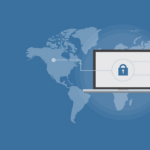In today’s hyper-connected world, our lives are intertwined with the web of digital data. From personal details to sensitive corporate files, a considerable amount of information is stored and transferred electronically every single day. With this growing reliance on digital data comes the risk of data breaches, making data encryption not just an option, but a necessity. In essence, data encryption converts our valuable data into a code, preventing unauthorized access and ensuring its safe delivery from point A to point B.
This blog post will take you through the significant role of data encryption in safeguarding sensitive information.
Ensures Only Authorized Access
Security professionals like Genetec, along with many others in the field, advocate for the role of encryption as a first line of defense against cyber threats. Unauthorized access to data, whether it’s financial transactions, medical records, or company secrets, can lead to severe consequences ranging from identity theft to significant financial losses.
Encrypted data can only be accessed using encryption keys, ensuring that only authorized personnel can view or manipulate the sensitive information.
Safeguards Data Integrity
Even when data doesn’t contain sensitive information, maintaining its integrity is of utmost importance. A malicious entity might not only want to steal the information but also alter it for nefarious purposes. Encryption ensures the data remains intact and unaltered during storage or transmission.
Any alteration to the data would require the encryption key, thus keeping the data’s integrity intact.
Compliance With Regulatory Standards
Industries that handle sensitive data, such as finance, healthcare, or government sectors, are often subjected to specific regulatory standards. These standards, such as the GDPR in Europe or HIPAA in the U.S., require data encryption to protect customer or patient information.
By using encryption, companies not only protect their data but also adhere to these compliance standards, avoiding potential legal issues and penalties.
Boosts Customer Trust And Confidence
In an age where data breaches seem to be making headlines every other day, data security is no longer a behind-the-scenes concern. Customers are becoming more informed and demanding about how their data is protected.
Using data encryption shows customers that their personal information is valued and protected, increasing their trust and confidence in the organization.
Protects Data Across Different Platforms
With the explosion of cloud computing and IoT devices, data now travels across a multitude of platforms and devices. This extended journey increases the risk of data breaches. Data encryption plays a vital role here by protecting data not just when it’s stored (data at rest), but also when it’s being transferred (data in transit).
Conclusion
In this digital age, data is an incredibly valuable asset. Therefore, the importance of data encryption in safeguarding sensitive information cannot be understated. It ensures authorized access, maintains data integrity, aids in compliance with regulatory standards, boosts customer trust, and safeguards data across different platforms. By incorporating robust encryption strategies, businesses can establish a strong line of defense against cyber threats, guaranteeing the safety of their and their customers’ precious information.
To conclude, data encryption isn’t just technical jargon, but an essential tool that, much like a sturdy lock to a treasure chest, keeps our digital valuables secure.








